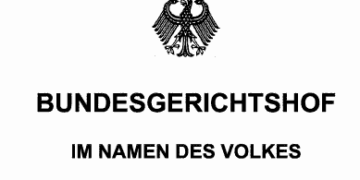Background to the legal dispute
Proceedings 33 O 178/23 before the Regional Court of Cologne concerned a claim by a subsidiary of Deutsche Telekom AG against a subsidiary of Meta Platforms, Inc. for payment of outstanding remuneration for data transport services. The plaintiff had a contractual relationship with the defendant since 2010, which was terminated in 2020. Despite the termination, Meta continued to use the private interconnects provided by Telekom without making the payments due. Telekom provided Meta with a total of more than 20 private interconnects, through which Meta fed almost all the data traffic of its social media services into Telekom’s network. Telekom then forwarded this data traffic to the users of the social media service in its access networks. The dispute between the parties arose over the question of whether remuneration should continue to be paid to Telekom for these services or whether Meta could use the interconnects free of charge after termination.
Contractual relationship and use of interconnects
Following the termination by Meta and the standstill in negotiations on a price reduction, Telekom declared that it would continue to provide its services only for a fee. Meta, on the other hand, wanted to use the interconnects free of charge under the industry standard of “settlement-free peering”. This is an agreement between Internet service providers in which data traffic is exchanged without mutual payment as long as there is an approximate balance. However, Telekom took the view that Meta’s previous use of the interconnects for a fee continued even after the termination and that a service contract for a fee had therefore been concluded. Despite the termination, Meta continued to send data via Telekom’s private interconnects without restriction and routed its data traffic via these to Telekom’s network. However, Meta did not pay the monthly invoices issued by Telekom for this use on the basis of the most recent contractual agreements.
Judicial decision
The Regional Court of Cologne ruled in favor of Telekom and established that a contract for services against payment existed between the parties. The court argued that Meta’s use of the interconnects after the termination was to be understood as acceptance of Telekom’s offer to continue the services under the previous economic conditions. The judges emphasized that the technical name of the interconnection (peering or transit) was irrelevant, as the parties had unanimously meant the same thing. The decisive factor was that Meta had the data forwarded to its end customers via Telekom’s network in the same way as before the termination. Even in the case of free use, this is based on a contract under the law of obligations, which, in addition to the transfer of use, also includes essential information and ancillary obligations. The court considered Meta’s continued use of the interconnects to be a corresponding declaration of acceptance of Telekom’s terms and conditions until the issue of fees had been resolved by mutual agreement.
Conclusion: Significance for the interpretation of contracts
The judgment of the Regional Court of Cologne has far-reaching implications for the interpretation of contracts in the area of data transport services. It shows that the continued use of services after termination can be interpreted as tacit acceptance of a new contractual offer. This applies in particular if the use is made under the same conditions as before. The court clarified that even in the case of use free of charge, a contract under the law of obligations may exist, which includes essential information and ancillary obligations. For the interpretation of the contract, the decisive factor is what the parties intended by agreement and expressed through their actual conduct. Technical terms such as “peering” or “transit” take a back seat when the parties mean the same thing. The ruling thus strengthens the position of network operators vis-à-vis the large Internet companies and creates more clarity regarding contractual obligations when using network infrastructure.
Conclusion
The ruling highlights the importance of clear and unambiguous communication between contractual partners, particularly when terminating and continuing services. Companies should ensure that they are fully aware of and comply with their contractual obligations and the conditions of use of services in order to avoid legal disputes. Unilateral termination and simultaneous continued use of services entails considerable legal risks, as the present case shows. Even in long-term business relationships, contracts should be regularly reviewed and adapted to changing circumstances. This is the only way to create legal certainty for all parties involved. The ruling could also have a signal effect for the entire industry by shedding new light on the issue of fair cost allocation for the use of network infrastructures. It remains to be seen whether this will lead to a rethink on the part of the major Internet companies or whether there will be further legal disputes.












































